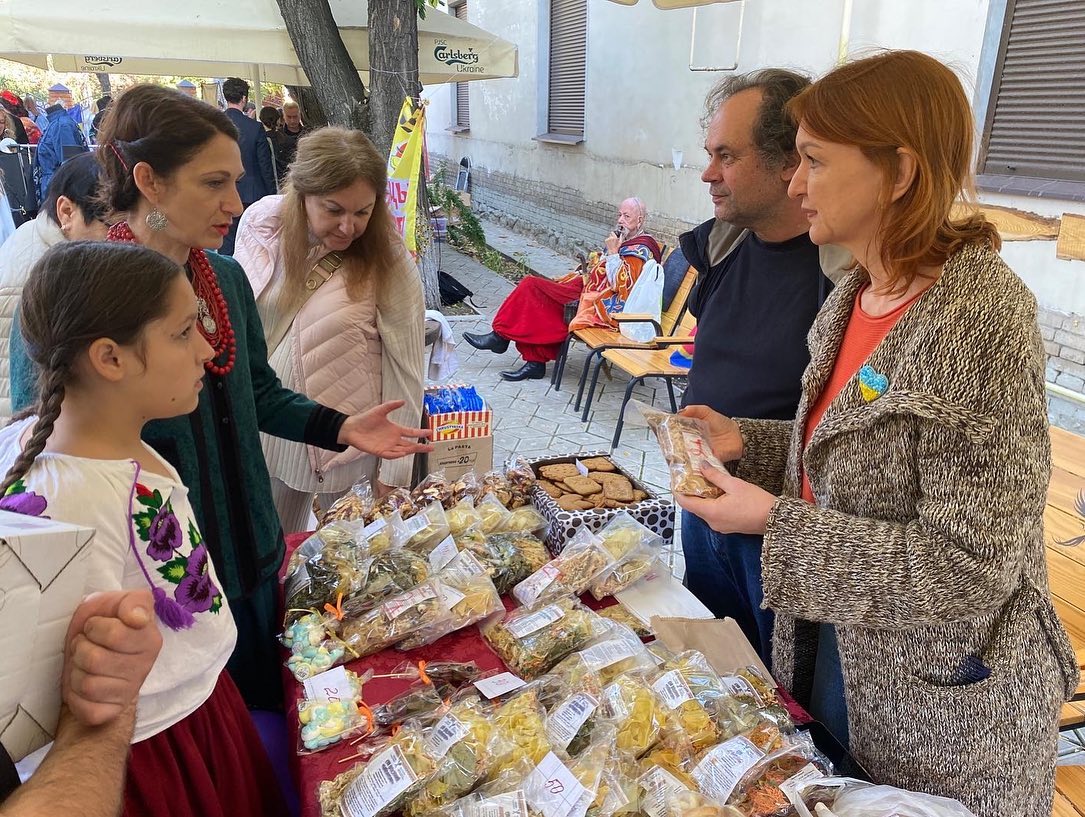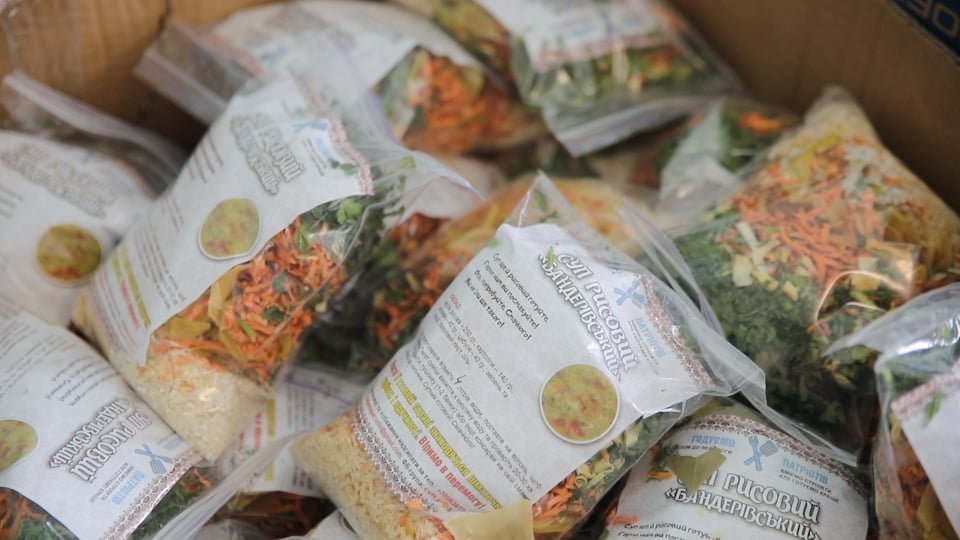How to develop volunteer initiatives with their own organized production
We will discuss the pros, cons, and pitfalls using the example of initiatives from the Kirovohrad region.
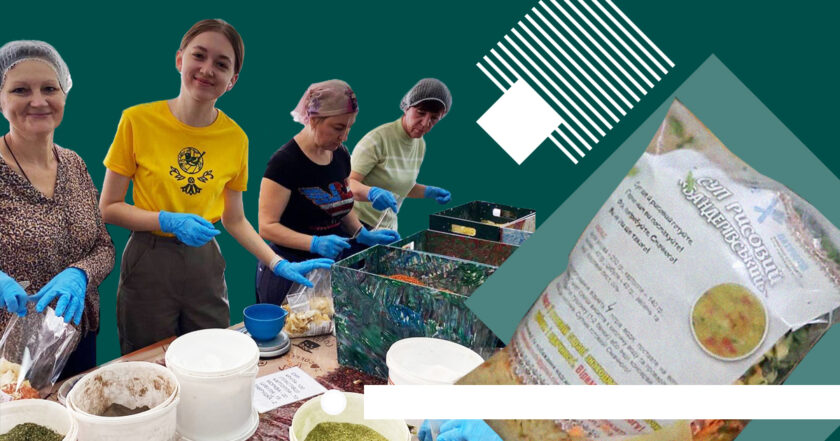
According to the latest research on the state of philanthropy in Ukraine, conducted by the Zagoriy Foundation and SotsioInform, the number of people who joined volunteering increased six times after the February full-scale invasion. Ukrainians organize charity meetings, purchase and transfer military aid, and participate in informational volunteering. A large part of the volunteer teams deployed not just service centers for receiving internally displaced persons or meeting the needs of the military. They've organized full-fledged production centers where they sew ammunition and clothing for defenders, pack food for long-term storage, weave nets and cots, and set military devices, potbelly stoves, and cooking stoves.
What is the problem?
According to the survey conducted by the Kirovohrad regional NGO, Association for Promotion of Self-Organization of Population within the Volunteer Support Program of the Kirovohrad region, the region's volunteer centers are most in need of financial support and new partnerships because new needs quickly arise after solved needs. The analysis of the questionnaire answers showed that the newly created volunteer centers have little experience in attracting international technical assistance. They need to expand their knowledge of planning and implementing initiatives and involving other teams in this process, including from abroad.
"We're constantly looking for money"
Alla Stoian, the head of the Viktoria volunteer organization from the Dobrovelychkivka community in the Kirovohrad region, talks about the difficulties of volunteering:
"Our organization survives at the expense of ordinary citizens who live on a salary or pension. Asking for donations is fine, but earning them yourself is better because we always look for money. We decided to organize a workshop with artisans and sell what we could make ourselves: knitted things and handmade jewelry. At the same time, we independently sew camouflage suits for our intelligence. However, now we hear a request from the guys for warm clothes: hats and balaclavas. We already have the fabrics, but we also need a sewing machine. We are looking for sponsors."
The upcoming cold season provokes another problem—along with raising funds for materials and equipment for the production of volunteer products, the question of finding resources to pay off heat payments comes up.
And if the latter need may not affect all volunteer centers, then the question "where to get money from" sounds almost every day. This was confirmed by the recent exhibition fair Volunteer Craft, which took place in Kropyvnytskyi with the participation of 16 volunteer organizations from 10 communities of the Kirovohrad region. The event participants were volunteer teams, which set up factories on their own bases and manufactured products that are now needed constantly and in large quantities. They came together to present their capabilities, get valuable contacts and fresh ideas for implementation at their production bases, and, most importantly, attract additional financial resources for urgent needs.
What is the solution?
Social entrepreneurship
Entrepreneurship development in the activity of a public organization can help volunteer centers to form a so-called financial cushion. Social entrepreneurship has its advantages and can be an effective model even for newly formed volunteer centers, says Alina Bocharnikova, social entrepreneurship development coordinator at the Future Development Agency and certified trainer and consultant in social entrepreneurship.
"Social entrepreneurship is a logical continuation of public and charitable organizations. This is when your organization continues to solve a social problem but does so through business tools. If we were to draw a formula for social entrepreneurship, it would look like this. You have a vision of planned social changes. You add entrepreneurship to the mix, that is, selling a service or product to a client, and as a result, you receive profit. You direct it to the solution of a social problem, that is, to implement those planned social changes," the trainer explains and names several ways volunteer centers can develop now.
A social enterprise can become the approach when the organization manufactures essential products, sells part of these goods, and pays for the free delivery of these goods for vulnerable groups. Many social enterprises work per the 1+1 model, when an item is sold for the price of two, Alina Bocharnikova stresses.
Social enterprises can reintegrate displaced people or other vulnerable population groups and create jobs to employ them. Today, many people have lost their homes and employment and need to recover in a new environment.
A social enterprise can be an additional fundraising tool. That is, from the profit of the enterprise, the public organization will be able to form a financial cushion and not depend on donations, donors, or benefactors.
According to a survey conducted in September by the Kirovohrad regional NGO Association for Promotion of Self-Organization of Population, 89.9% of respondents representing volunteer centers from 11 regions of Ukraine considered the possibility of starting a social enterprise at their organization. At the same time, 98% of respondents said they needed to improve their knowledge on this topic.
"If at the beginning of the full-scale invasion, volunteer centers were created to respond to the needs of the military and people who had to flee from the war, now, having such a strong material and human potential, they can work for the economy of a specific territorial community. One of the tasks of the Volunteer Support Program of the Kirovohrad Region, implemented by our organization with the support of the National Endowment for Democracy, is to comprehensively support such teams and help them develop social enterprises based on public organizations," says Alla Voloshyna, head of the Association for Promotion of Self-Organization of Population. "We already support several regional volunteer centers in launching an entrepreneurial component. At the same time, we will develop standard documents that can be used later by volunteers who will choose the same path to strengthen their organization's capacity."
Simple Social Entrepreneurship by Alina Bocharnikova can help on the way to a social enterprise. It simply explains the complex process of business modeling and launching your social enterprise in the format of games, checklists, tables, diagrams, examples, and a road map.
How does it work?
Sewing production to support the military
The union of ATO veterans and volunteers of the Oleksandrivka district of the Kirovohrad region, Neskoreni, has been working since the time of the anti-terrorist operation (ATO). Now the organization has settled in the local cultural center and organized the volunteer hub, Neskoreni. The volunteers' priority is to help people in war: they constantly prepare long-term storage food kits for the military, sew military ammunition and clothing, and have developed cereals in thermal packs, including kits for vegan soldiers. Residents of Oleksandrivka, and people outside its borders, wear patriotic T-shirts sewn by the hub, attracting internally displaced persons. With the help of a grant received within the Kirovohrad region volunteer support program financed by the National Endowment for Democracy, Neskoreni replenished its production with four modern sewing machines. Now they are developing new clothing designs so that more Ukrainians want to buy them. The collected funds will continue to be used for the hub's needs, and now it will work as a volunteer hub and a social enterprise. The main argument is the need to create a stable supply of finances for the union's activities.
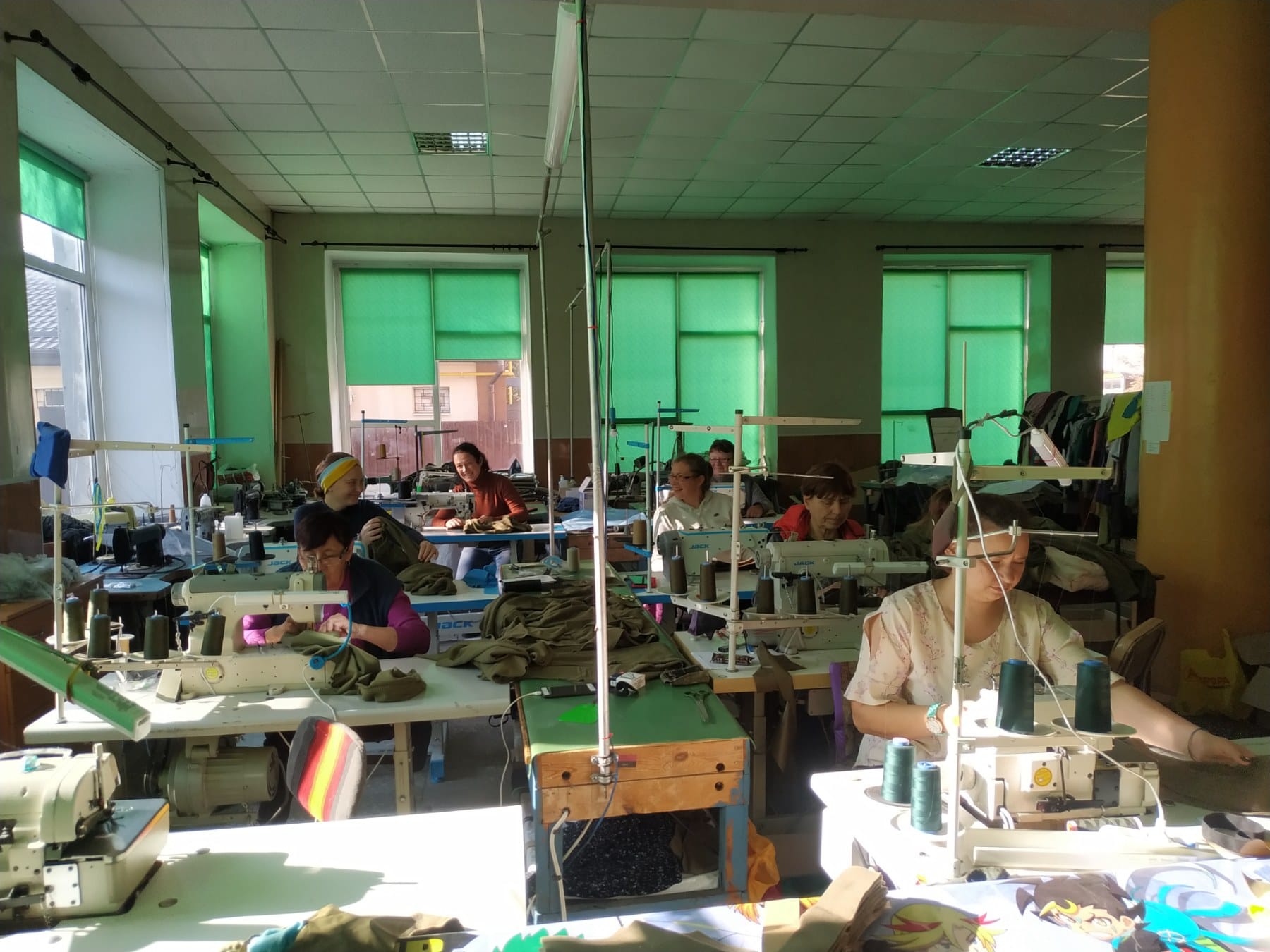
FB photo: Union of ATO veterans and volunteers of the Oleksandrivka district of the Kirovohrad region, Neskoreni
"The development of a social enterprise is important for us to help our public organization, as well as to help the military and their families now and in the future, especially after the return of the wounded boys. We want to meet the needs of our defenders fully," Volodymyr Shabanov, head of the organization, explains. "We have migrants working for us, and we understand that it is like a new workplace for them. For now, we provide them with things and products. Still, we must retain specialists to develop the sewing industry."
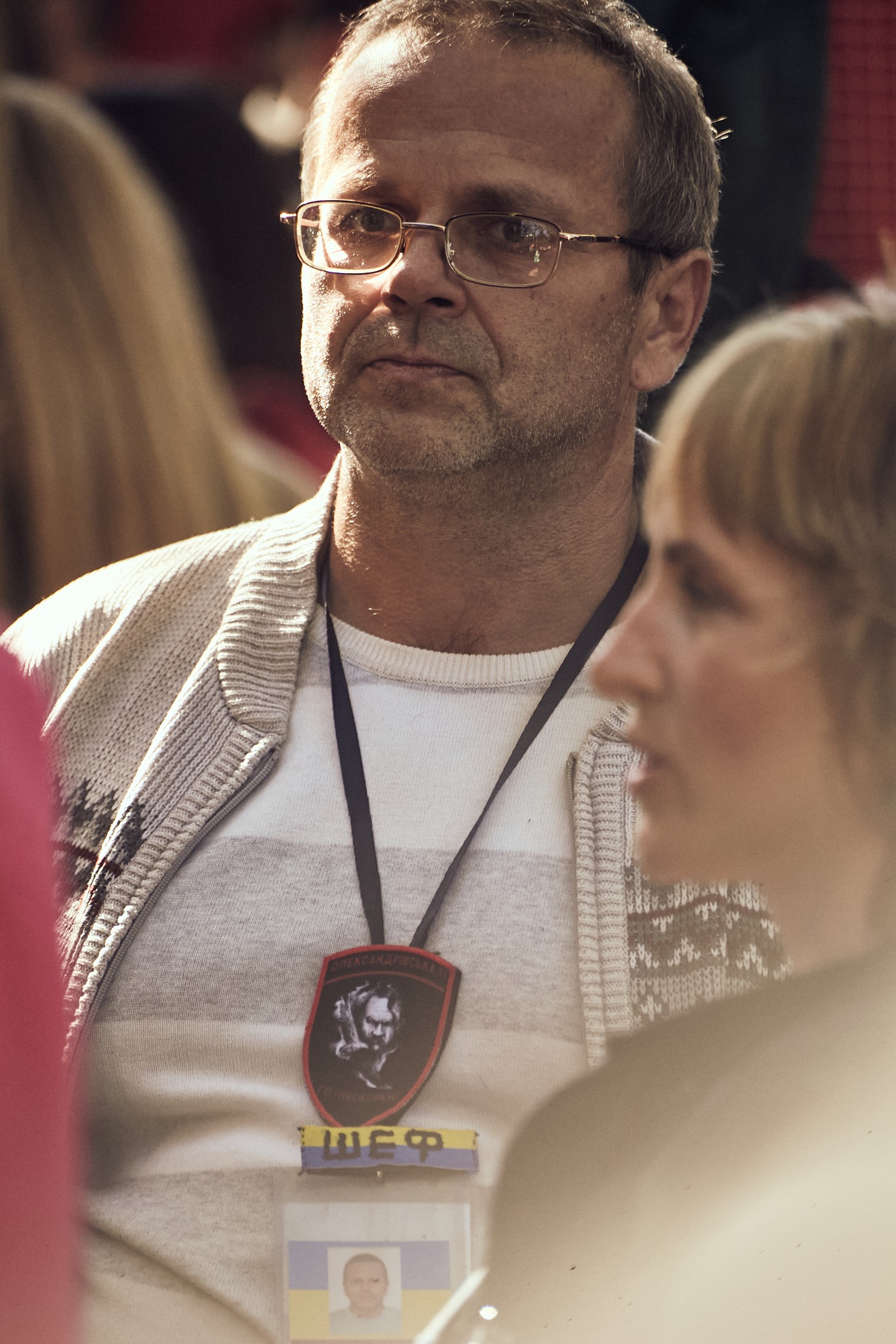
Volodymyr Shabanov/FB photo, Association for Promotion of Self-Organization of Population
The team launched several waves of Buy T-shirt For Soldier and Warm Soldier challenges in their community. It is said to be effective, as community residents challenge each other to buy clothes for themselves and their families. Sometimes the challenge goes beyond the village.
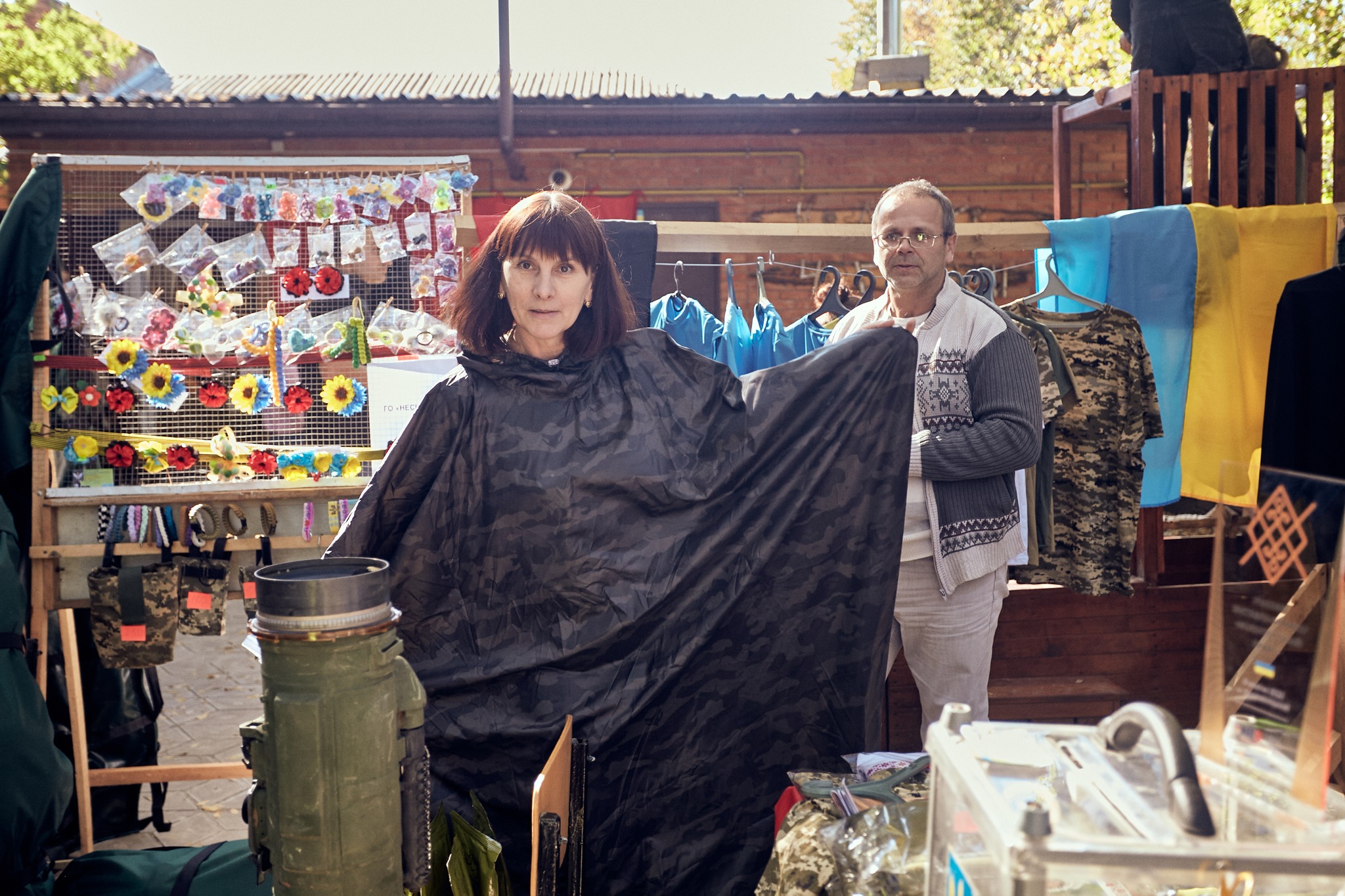
FB photo: Association for Promotion of Self-Organization of Population
"All donations are directed to purchasing materials or treating our boys. In Oleksandrivka, you can buy a t-shirt for a donation at our factory and in another local store. Still, we are negotiating to transfer our products to be sold at themed military and patriotic clothing stores. We are also thinking about our online store. We have registered a sole proprietorship to engage in entrepreneurial activities in the legal field parallelly," Volodymyr continues.
Production of dry soups for those who cook on fire
The volunteer initiative, Feeding the Patriots, has also existed since 2014. Back then, the girls and boys worked under the Kitchen Hundred brand and decided to unite in the Dobromyr public organization this year. Currently, the community has 300 volunteers who independently clean, cut, dry, and pack vegetables for dry sets of soups and borschts for the military and residents of the regions who, due to military operations, are forced to cook food on fire. Among the volunteers are also people who left the fighting and stayed to live in Kropyvnytskyi. The assortment of volunteers includes two borscht types and six soup types developed according to the organization's recipes. The initiative is already building a team and marketing strategy for the future social enterprise, having attracted grant assistance within the UN Program for Reconstruction and Peacebuilding with the financial support of the European Union. However, the actual launch of the enterprise was postponed until after the Victory.
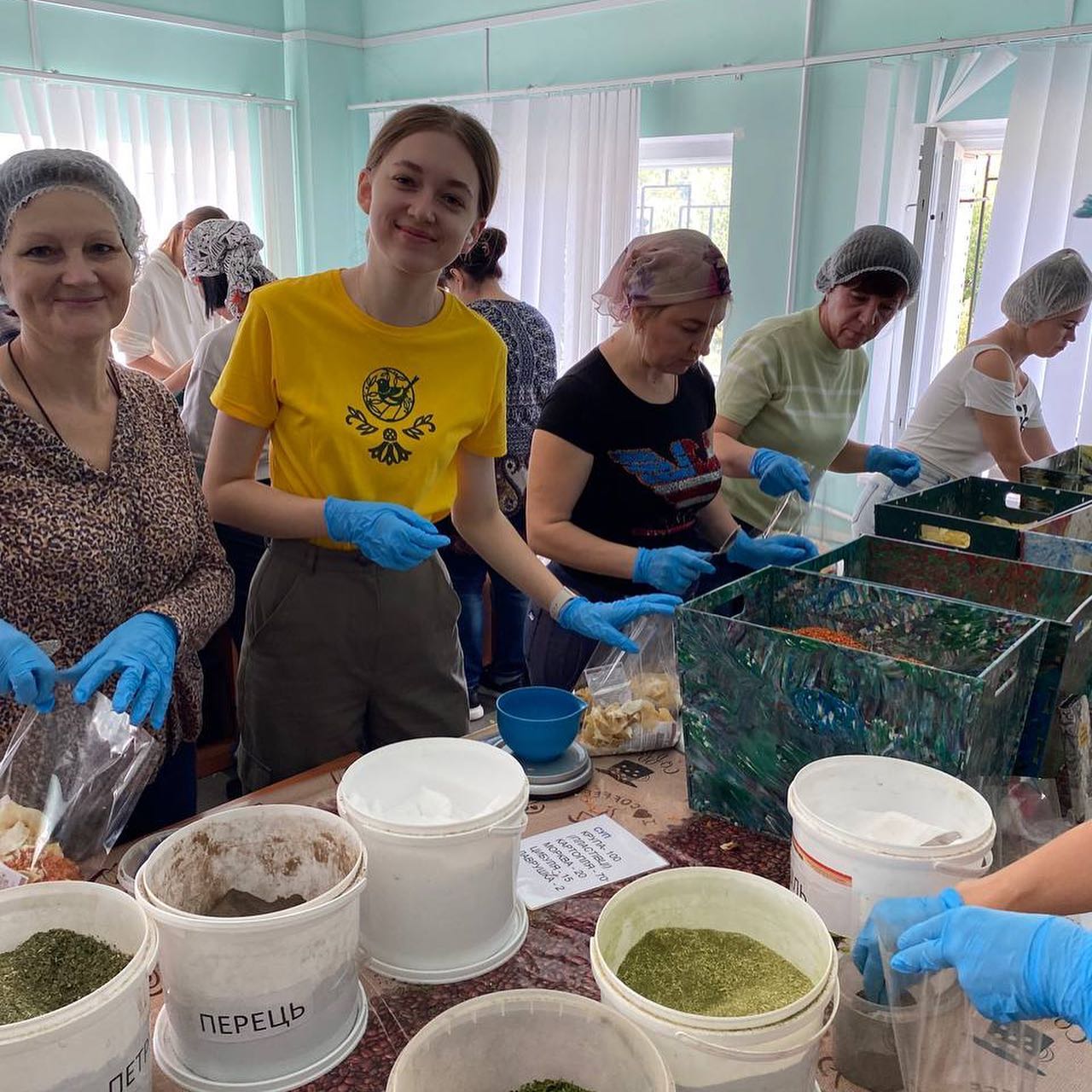
FB photo: Dobromyr
"We started preparing the initiative to turn it into a social enterprise. We have a registered NGO, Dobromyr, with its politicians. We bought dryers with grant funds and are strategizing a business plan. We are forming a team that will work comprehensively in all areas needed for the company's activity," says the coordinator of the volunteer initiative, Viktoria Talashkevych. "As part of volunteer activities, we are already trying to sell our dry food kits. We are watching how people react to our product. We see requests for dry sets from travelers and parents whose children study at universities in other cities.
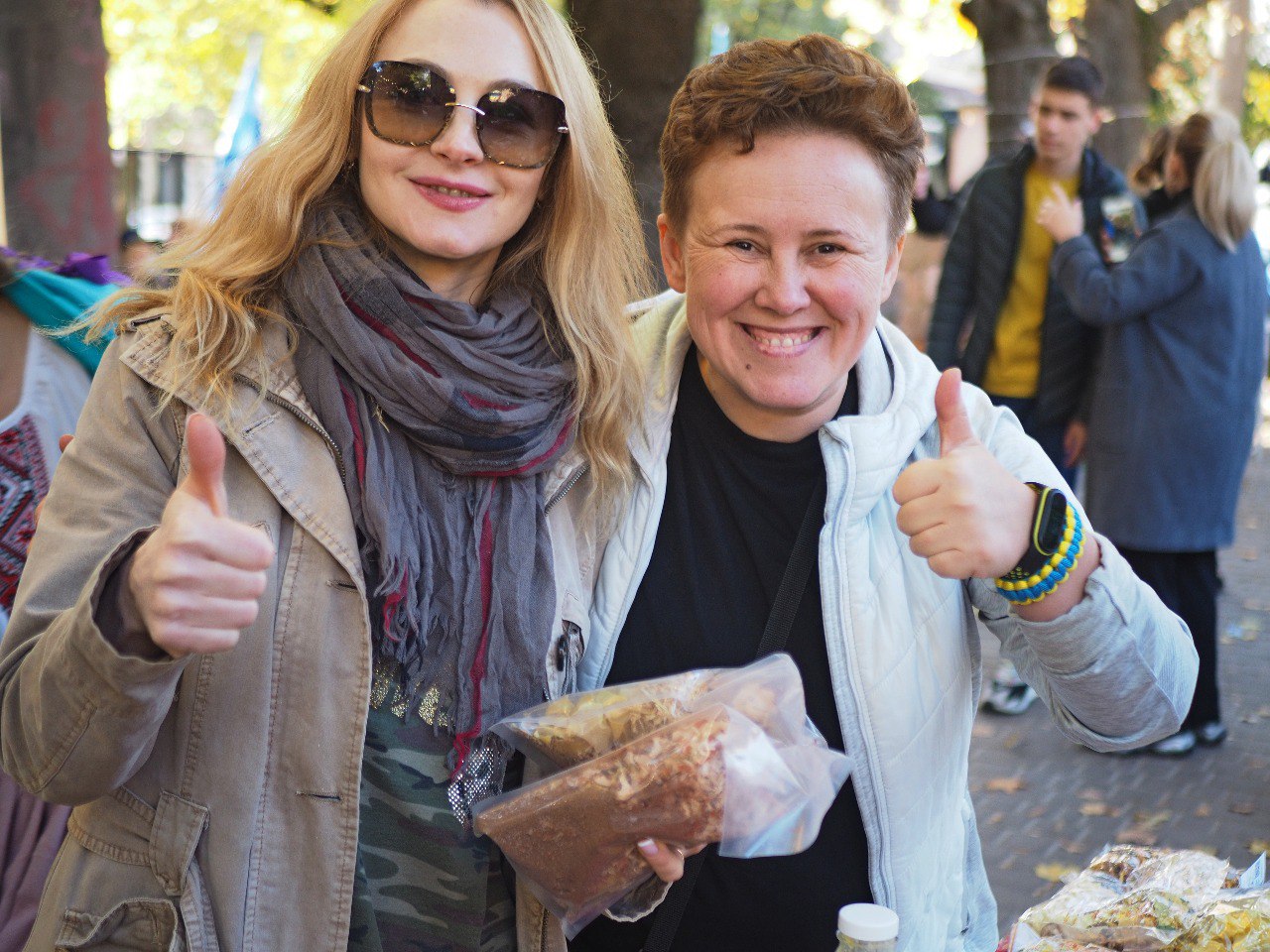
To the left, Viktoria Talashkevych/ FB photo
Now we buy vegetables with grant funds and donations, but thanks to this, we form a reliable base of suppliers, among which there are many farms from our region. Our goal is to turn into a social enterprise after the victory, which will produce dry soups and borschts. We will direct all funds from selling these kits to improving the production base, purchasing ingredients, and compensation for utility costs. And so far, we are working only to provide dry kits to people who live and serve in the occupied and liberated territories."
As an enterprise, the volunteer team plans to cooperate with local, territorial communities so that dry kits can be received by socially vulnerable categories of the population, as is the case in European countries.
"Social entrepreneurship is not a cure-all, and business is not suitable for everyone"
Before starting a business, volunteer organizations are advised to weigh all the pros and cons several times because not everyone will cope with a business, especially in times of constant uncertainty.
"Social entrepreneurship is not a cure-all. It will not suit everyone. If you're already getting by only thanks to charitable donations, then maybe starting a business and selling something else may be excessive. Social entrepreneurship requires systematic work, a team that works according to a schedule. This can go against many people's aspirations to volunteer, wanting to be useful and serve others. Let's be honest. The manager who manages the social enterprise will not be able to pay the same attention to the public organization. This will entail the team's expansion, the involvement of additional resources, and the need to upgrade new skills so that both the business and the organization work. Not everyone should start social entrepreneurship in times of war. It is also worth remembering that production is the most difficult type of business, rather than, for example, reselling something," explains Alina Bocharnikova.
Voluntary teams from the Kirovohrad region, which have already started on this path, also discuss the difficulties of starting social entrepreneurship. The greatest need is knowledge and business skills. Alina Bocharnikova advises "not to dig in from the start" in developing business plans, the involvement of an SMM specialist or marketer. The most important thing is to answer the question: why do we need it? Shall we pull it off? What do we need for this? What are we ready to offer, and to whom?
"Social projects are definitely easier. You planned one and implemented it. But a social enterprise is much more interesting, although it requires entrepreneurial flair, market analysis skills, and creativity. Volunteer centers can currently not start their legal entity but try to sell their products through other providers and other stores. This is how, for example, handmade workshops work. Starting simply by selling goods through other entrepreneurs, you can understand how much the products you make are interesting to your consumer and whether it is worth the change," the trainer advises.


